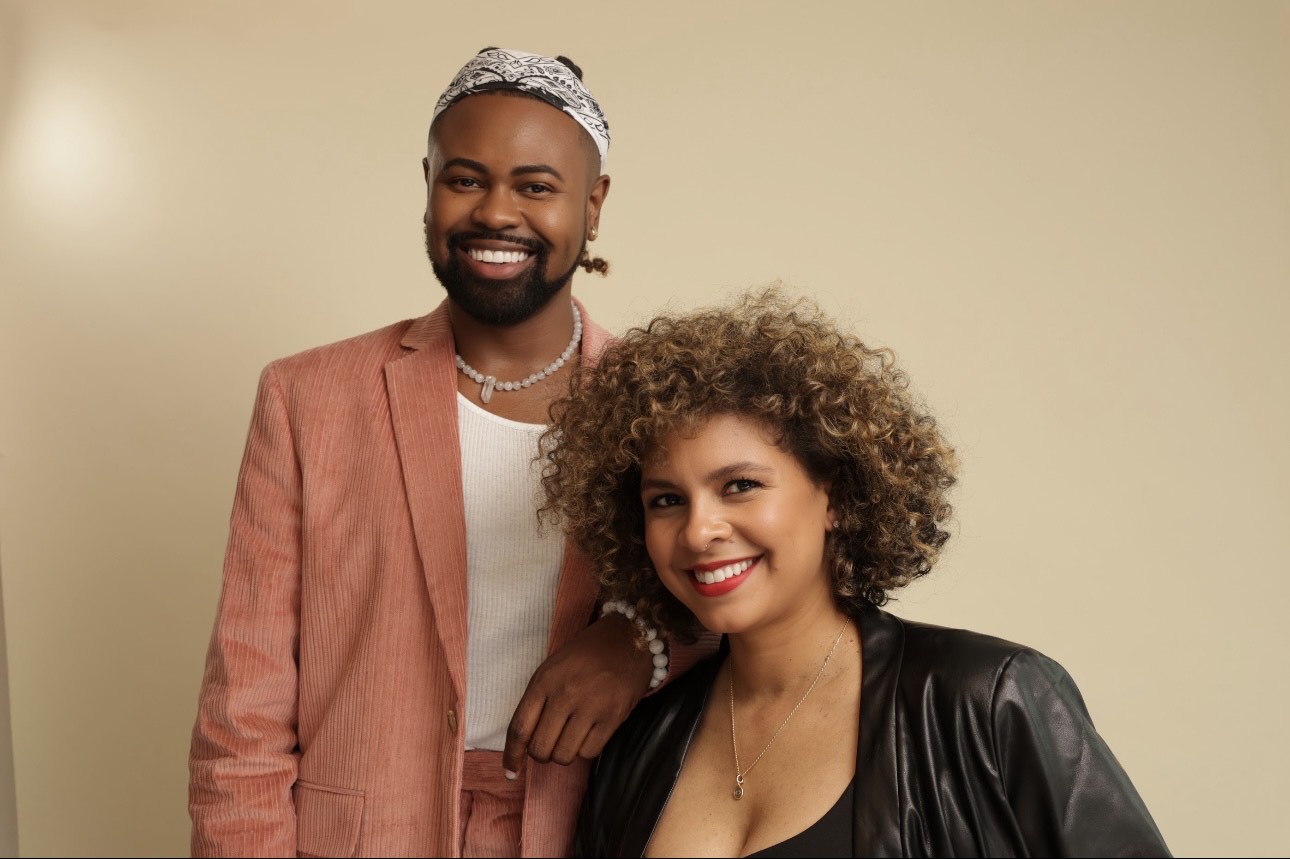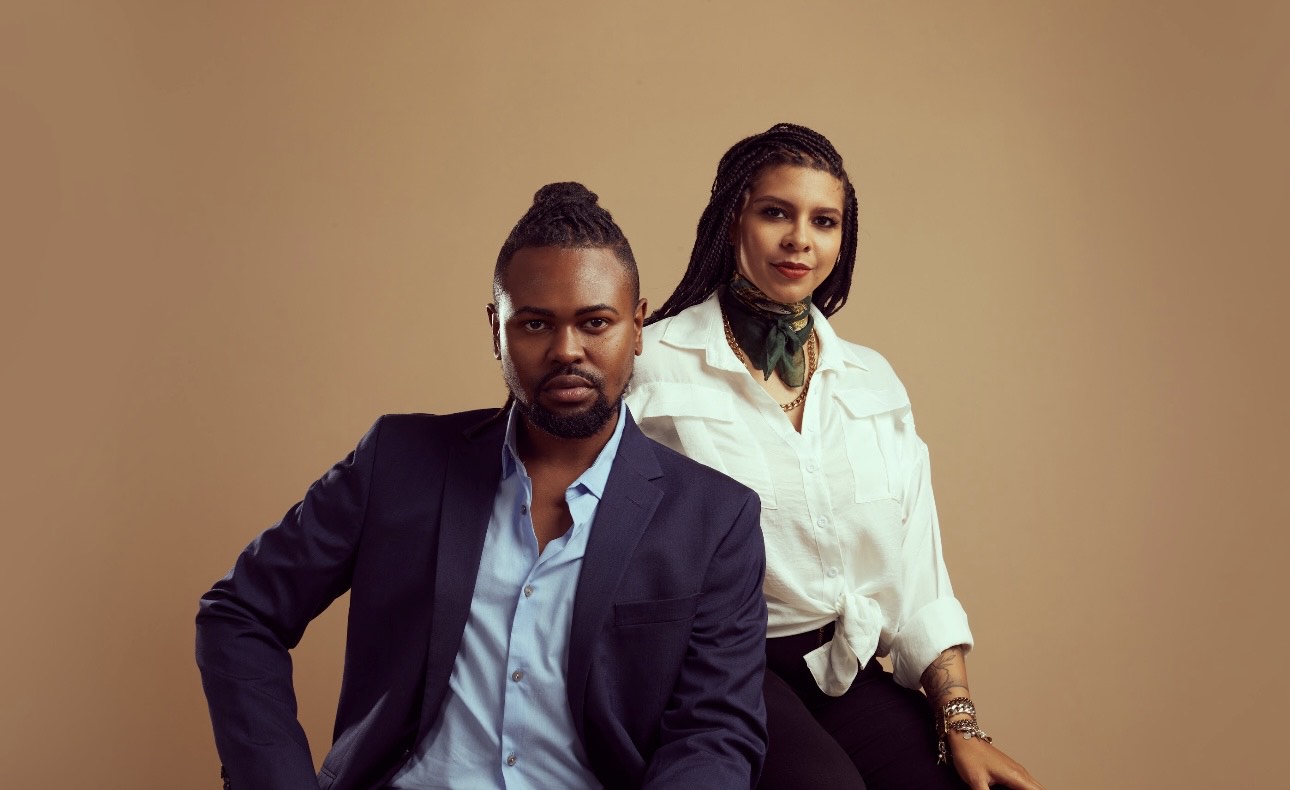Rose Neal Collective Founders Talk DEI & BIPOC Brands
Rose Neal Collective Founders On Helping BIPOC Beauty Brands Thrive Amid DEI Cuts, Boycotts & Economic Blackouts [Exclusive]

Source: Karess Rosemé and Dwight O’Neal / Karess Rosemé and Dwight O’Neal
After President Trump’s push to end diversity, equity and inclusion (DEI) policies, major retailers like Amazon, Walmart, and Target scaled back their initiatives, prompting a 24-hour economic blackout on Feb. 28 in protest. While the boycott aimed to challenge the move, it disproportionately harmed Black, Indigenous, and People of Color (BIPOC) beauty brands, many of which already struggle for retail shelf space. Karess Rosemé and Dwight O’Neal, co-founders of the Rose Neal Collective, spoke with MadameNoire about the boycott’s detrimental impact on these businesses and how their consulting firm is helping BIPOC beauty brands thrive in the face of DEI’s demise.
While the boycott, led by The People’s Union USA, an activist group, made a minor dent in Amazon’s sales, Walmart and Target—retailers housing clients of the Rose Neal Collective, like natural haircare brands Pattern Beauty and Briogeo—suffered a significant blow. According to USA Today, Walmart’s web traffic dropped 6.5%, down to 11.2 million on Feb. 28 from 11.9 million the previous Friday. Walmart’s app usage also fell 2.5%, dropping to 13.6 million from 13.9 million.
Target experienced an even greater decline. While its web traffic only fell 1.0% to 4.7 million, compared to the previous Friday’s 4.8 million, traffic to its app dropped 10.9%, falling to 3.5 million users from 3.9 million. The retailer’s stock also took a significant hit, losing about $12.4 billion in market value, as reported by Seattle Medium. O’Neal told MadameNoire during an exclusive interview that the loss was especially devastating for members of the Rose Neal family.
“Unfortunately, we don’t have an overall number, as we only represent a few BIPOC brands in the stores that were boycotted. However, all of our clients within those spaces saw significant revenue loss, and for one brand, this was their sole distribution channel, putting their long-term future at risk.”
RELATED CONTENT: Trump Attacks DEI — 10 Companies Now Scaling Back Their Diversity Programs
If another boycott happens, BIPOC beauty brands could face more turmoil. To counter this, O’Neal and Rosemé are working closely with their clients to pivot, focusing on building a strong customer base beyond major retail spaces. Since founding their consulting firm in 2022, the duo have been educating clients on how to enhance their marketing, sales, product development, and more, enabling them to scale independently through their websites and other platforms, driving direct consumer sales.
According to O’Neal, sales performance directly influences shelf space and restocking, so disruptions like this can have lasting effects. For one member of the Rose Neal Collective already in Target, recovering from the economic blackout may be a tough challenge.
“Right now, Target is deciding what brands they’re keeping or exiting [from], and it doesn’t look good for that brand,” O’Neal, who recently wrote a blog article detailing why consumers should reconsider boycotting the massive retail giant, shared. “And if they’re not successful within that space, where are they going to go? So, brands are definitely very nervous. The thing that we keep sharing with them is that you can’t keep all your eggs in one basket.”
How did we get here?
After George Floyd’s murder in 2020, Target and Walmart emerged as leading advocates for DEI initiatives in the business world. In the wake of the tragedy, Target committed to increasing its Black workforce by 20% over three years and pledged to spend over $2 billion with Black-owned businesses by 2025, including adding products from 500 Black-owned vendors to stores, CNN noted.
Walmart made similar promises, vowing to expand its network of suppliers owned or managed by women, minorities, veterans, and LGBTQ+ individuals. However, in the lead-up to President Trump’s term, both retailers announced they would reassess and discontinue their DEI programs. Rosemé feared major retailers may not fulfill their promises, especially in supporting BIPOC beauty brands in-store. She stressed that in-store support is vital for success, as scalability is a major challenge for emerging BIPOC beauty brands.
“We want them to succeed. A lot of brands that have entered into retailers don’t understand how to navigate the nuances, and also don’t understand how important the in-store support piece of it is. We act like a stepping stone, helping them to activate within key markets, activate in smarter ways, so they can reach out to where [their] consumer is.”
Fortunately, some major retailers, like Sephora and Ulta, are stepping up to support emerging BIPOC brands through accelerator programs. Rosemé described these initiatives as a “boot camp” where companies can learn what it takes to succeed in the competitive retail space.
“The retailer will take them through this program to show them what it is that they need, how they can allocate resources, [and] put them in rooms with VCs and other opportunities for funding. We have also been discussing with the retailers how they can integrate us into these programs so they can utilize our services once they’ve launched for in-store support. Whether that’s through events, offering educational support, or sampling and trials within the store. That is where we have had some of the most successful conversations with retailers.”
Livestream selling will be key for BIPOC beauty brands.
Offering advice, O’Neal noted that beyond retail, BIPOC beauty brands have other opportunities to thrive. He shared that livestream selling is a powerful tool that brands can use to drive direct sales to their websites and build stronger connections with their customer base.
“It’s happening on TikTok, apps like Bigo and integrating onto YouTube, and Instagram—it’s the next thing,” the beauty brand consultant said. “Get out there. You can do this on those social media platforms. There are things like StreamYard that you can integrate on multiple platforms at a time, or even on your website. Building a community around your brand is going to be key. Go and look and see who those local boutiques are in your area [or] beauty supply stores within your communities – partner with them.”
Pop-up events are also a great way for brands to attract new fans, engage customers, and strengthen their community with loyal supporters. “If we can direct them as to where to go, they will go there. This is going to be so key to ensure that they are able to sustain and still succeed,” O’Neal said.

Source: Karess Rosemé and Dwight O’Neal / Karess Rosemé and Dwight O’Neal
Rose Neal Collective family members, Sienna Naturals and Chris Collins, are thriving in the face of DEI’s crumble.
Despite DEI’s erasure, several BIPOC brands are thriving. Rosemé and O’Neal praised luxury fragrance brand Chris Collins and the rising natural hair care brand Sienna Naturals, founded by Hannah Diop and her sister-in-law, actress and writer Issa Rae. Both brands, members of the Rose Neal Collective, are redefining the beauty industry with their innovative products.
“It’s just so exciting to see that we are creating a space and a lane for beauty. We do it better. No one can match what we do as people and how we show up,” O’Neal said.
Although BIPOC beauty brands may have to work “twice as hard” to scale and secure shelf space in major retail, he added that many beauty brands should “lean” into their strengths.
“One thing that I will say is they can’t do it like us. They weren’t built that way.”
Rosemé stressed that BIPOC brands within the beauty space will need to continue to identify their unique selling point, strengthen it, and stand out in this challenging economic climate, especially as customers tighten their pockets.
“In this landscape, you have to lean into your value proposition,” the beauty and business expert shared. “What is your point of difference? How are you going to stand out? Because not only is it noisy in the landscape of beauty in general, but it’s becoming even louder and even noisier because of the political climate. So, how do you stand out in that way? How do you add value to your brand and your product when clients and consumers are trying to scale back, because eggs are $10 a carton? It is really hard out here for consumers, just as hard as it is for BIPOC entrepreneurs.”
Rosemé added, “Leaning into your community, being creative and honing in on your value proposition are going to be ways that BIPOC brands can navigate this unknown space right now. One thing that smaller BIPOC brands have that larger conglomerates don’t is agility.”
RELATED CONTENT: Issa Rae Swears By This Natural Hair Hack — Revolutionized By Her Clean Haircare Brand Sienna Naturals







